Summer feasts: managing unwanted visitors in outdoor spaces
Many are enjoying outdoor spaces to gather and eat before the days start to shorten and temperatures start dropping. While this can be a great way to connect with nature, you may also experience some unwanted visitors!
This can include animals like:
- Bees and wasps
- Gulls, pigeons and other urban birds
- Flies, ants and other insects
- Small mammals like rodents and squirrels
Although their presence may feel like a nuisance, many of these animals play key roles in the ecosystem. Coexisting with them and minimizing harm allows all creatures to enjoy the natural environment!
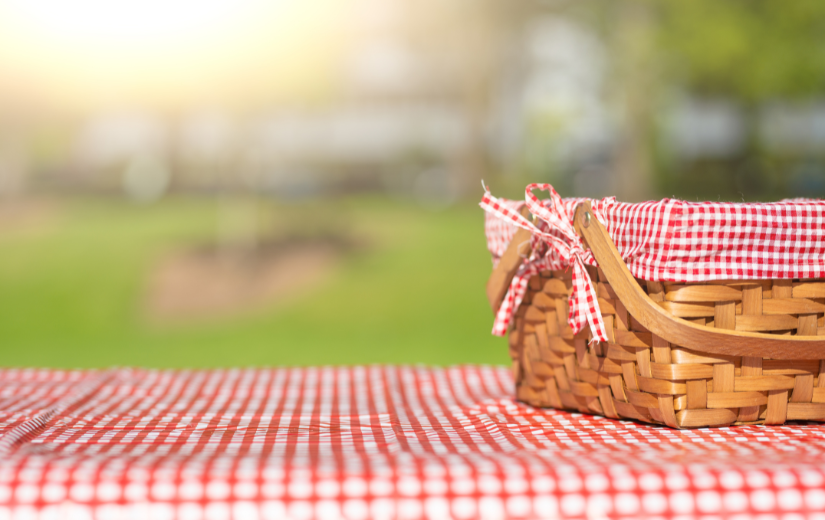
Say no to sticky traps and poisons
Sticky fly traps, glue traps and poisons should never be placed outdoors. They can be inhumane and have unintended effects on non-target species and the environment. Animals like this Chestnut-backed chickadee and Little brown bat are patients that were brought to the BC SPCA’s Wild Animal Rehabilitation Centre (Wild ARC) after being caught in glue traps intended for insects.
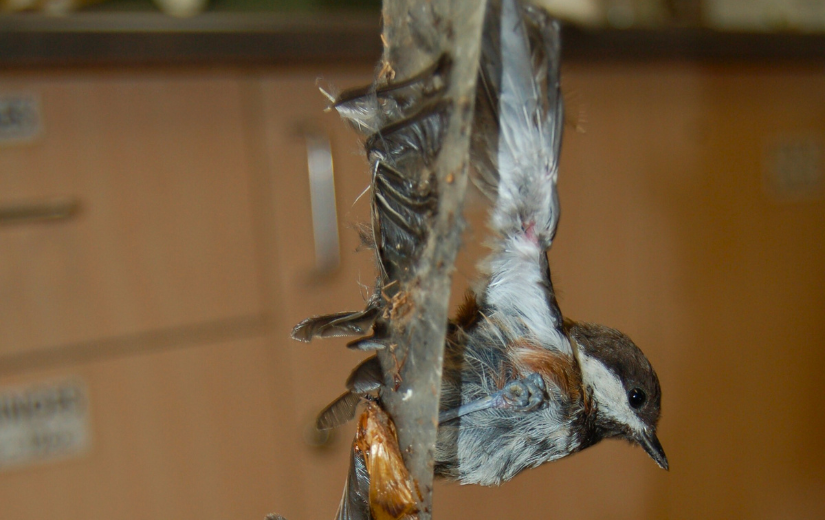
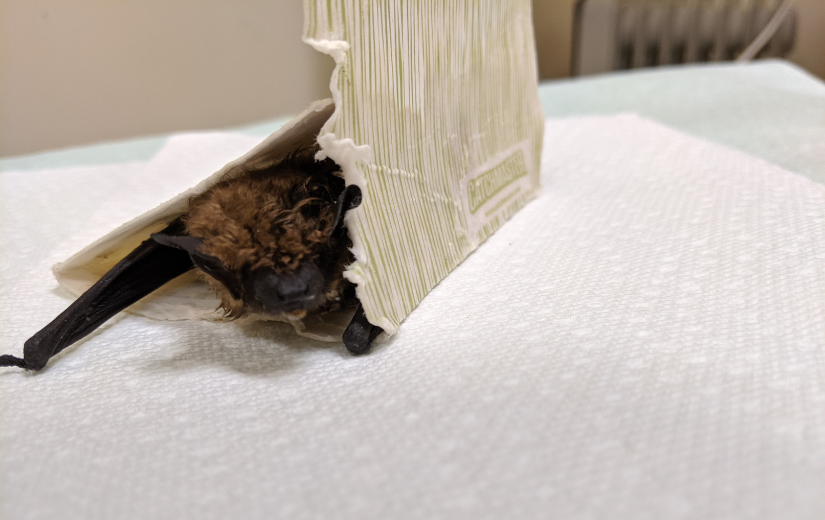
Removing animals from sticky traps is delicate, time-consuming work and should only be attempted by professionals to minimize damage to feathers, skin and fur. If you encounter an animal trapped in a sticky trap, call the BC SPCA Animal Helpline at 1-855-622-7722 to help identify your nearest wildlife rehabilitator.
Never feed wild animals
If you have ever visited a tourist hotspot, such as Granville Island in Vancouver, you may have seen a variation of ‘don’t feed the wildlife’ signs, such as the one pictured below. People enjoying food outdoors feeding wild animals can result in animals becoming habituated and displaying bold behaviour.
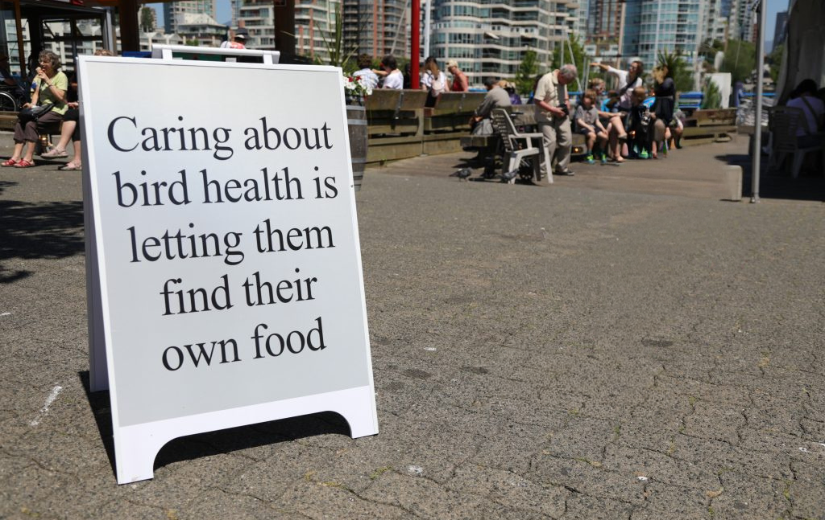
If you are enjoying a meal in your backyard, a local park, a tourist hotspot, or anywhere else outdoors, make sure to never share your meal with a wild animal to keep yourself and the animals safe.
Learn more about the harms of feeding wildlife.
Leave no trace
Leftover food, or the smell of improperly cleaned up food, can be attractive for insects, rodents, and other wildlife. To prevent animals from returning to an area, such as your backyard, make sure to thoroughly clean up any food that may have fallen to the ground and wipe all surfaces. If you are enjoying food in parks or other public spaces, follow the ‘leave no trace’ mentality to keep animals and the environment safe long after your visit.
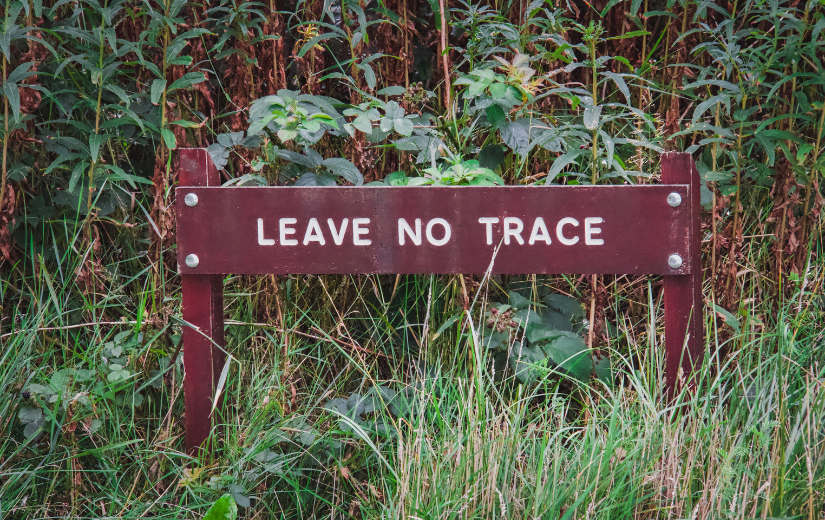
Protect the food
To manage unwanted guests at your meal, here are some tips to minimize their presence in a safe way:
- Insects are often in locations with water and minimal wind. Consider location when choosing where to eat and consider bringing a portable fan to keep insects away from food.
- Keep food items and drinks well covered when not in use to remove them as attractants during the meal.
- Some animals can be humanely deterred by strong scents such as vinegar, citrus, and essential oils. Consider using these scents in addition to our tips above to dissuade unwanted guests.
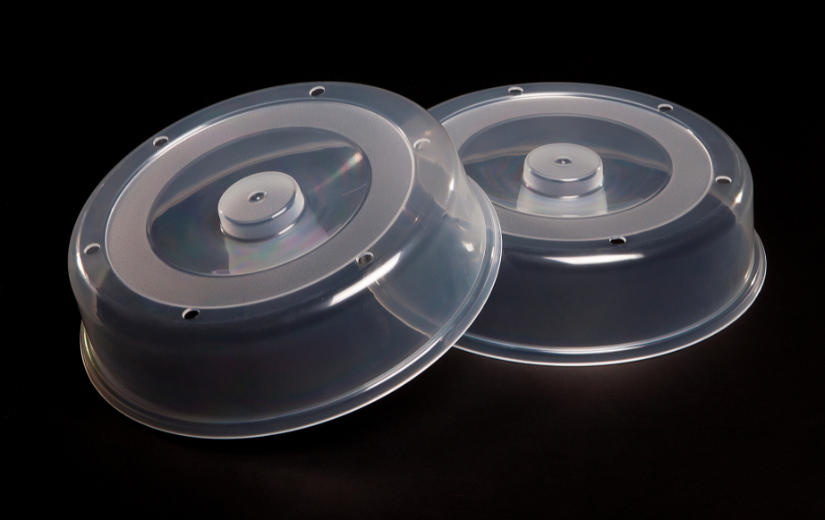
Being mindful of our neighbours in outdoor spaces allows us to plan ahead and minimize unpleasant encounters with wild animals. Using these safe and humane tips can allow you to enjoy outdoor spaces for many meals to come!
Useful Resources
- Read about coexisting with wildlife.
- Learn more about the consequences of wildlife feeding
- Understand the harms of glue traps